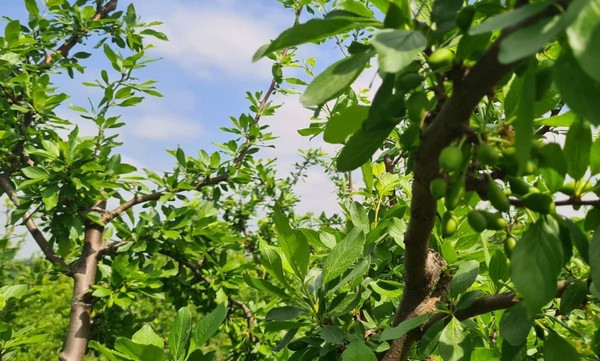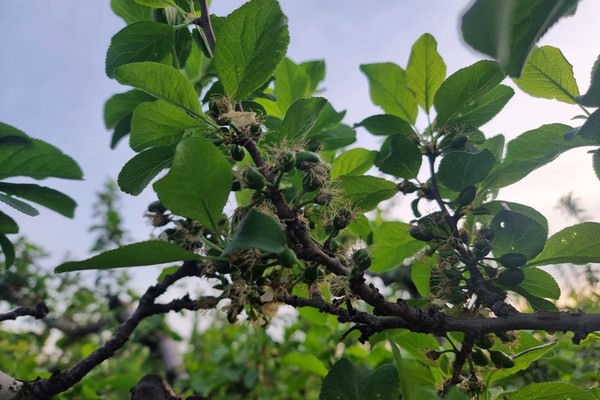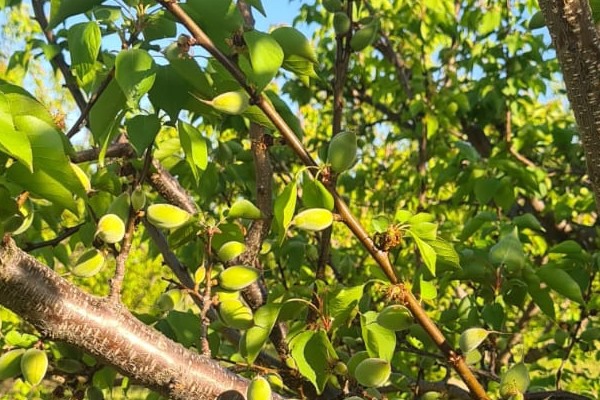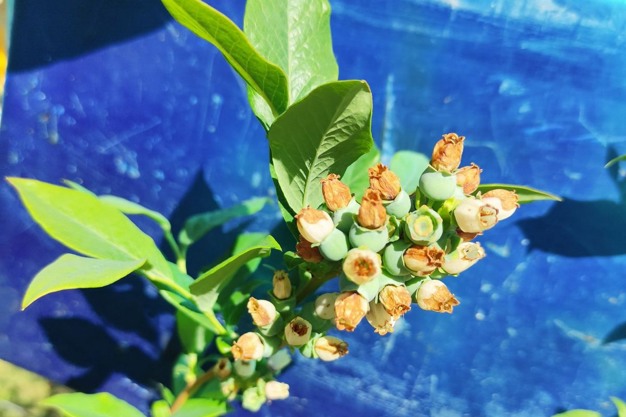High temperatures of up to 30 degrees across large parts of Serbia have accelerated the vegetation of stone and berry fruits. According to initial forecasts, the harvest of the early plum variety Cacaks Frühe is expected to begin in the second week of June, and subsequent varieties such as Cacaks Schöne (Lepotica) and Stanley will be ready for harvest two to three weeks earlier than usual. "Only an acute cold front could still slow down the growth of the trees, but I do not expect late frost to occur," says Anneliese Vollweiler, Managing Director of Anevo Trading Ltd.
Similar to apples, plum trees exhibit a certain alternation, which is why the trees do not yield the same harvest every year. Vollweiler: "According to this vegetative cycle, this year, after two below-average harvest years, we would again have a bountiful plum yield." Approximately one-third of the total import volume of Anevo Trading is marketed at the fresh market (trade and pitting). However, the lion's share is still processed in the frozen food or schnapps industry.

The Stanley plum variety, blossoming.
Germany continues to be one of the main markets for the Serbian fruit sector. "For many companies, it is an honor to be able to deliver goods to Germany. In this respect, the German market holds an incredibly high significance, where consistent, homogeneous qualities are also appropriately rewarded in terms of price. Unfortunately, Serbian plums have been increasingly relabeled as Italian goods and sold in Austria and Germany in recent years," Vollweiler says about this deceptive labeling.

All fruit varieties from Serbia will begin their harvest several weeks earlier this year. Pictured: Cherries of the Oblacinska variety
Professionalization of the Serbian fruit sector
Anevo Trading has been dedicated to sourcing and marketing fruits of Serbian origin for many years, including strawberries, cherries, raspberries, plums, apricots, and blackberries. To continue to meet the high standards of the German market, many Serbian companies are now modernizing and professionalizing their processes and value chain, observes Vollweiler. "The latest measure is the implementation of a sustainable packaging industry and the use of IFCO reusable crates instead of wood and cardboard. More and more retail chains ultimately want to work in a resource-conserving manner and reduce their CO₂ footprint, and they demand the same from their suppliers." In addition, quality management was relocated to Serbia last year. A European pesticide monitoring that many European countries already desire is being aimed for.

Donaurose apricots.
The effects of climate change are becoming increasingly apparent in the Balkan region, with sometimes disastrous impacts on fruit cultivation, Vollweiler continues. "Sun protection is an important issue for many fruit crops, including plums. In 2023, there was a lot of precipitation, followed by prolonged heat. This particularly affected the yields of cherries, but also of plums. As a result, plum prices were up to 30 percent above the average level. Given that the domestic plum harvest in Germany was also below average, there was a corresponding reliance on goods from third countries, namely Serbia, Moldova, North Macedonia."

Blueberry blossom: The harvest is expected to begin around May 20.
Images: Anevo Trading GmbH
For more information:
Anneliese Vollweiler
Anevo Trading GmbH
Fraunhoferstraße 16
D-91058 Erlangen
Phone: +49 (0) 9131 6108673
Mobile: +49 (0) 170 581 7970
Email: [email protected]
Web: www.anevo-trading.com
